Healthcare
Access to healthcare is a key concern for returning or recently returned emigrants. Access can vary depending on individual circumstances, and Safe Home Ireland can offer guidance specific to your needs
The information below is intended to provide basic information and to help answer your questions about healthcare. You can also get a more detailed overview on entitlement to health services in Ireland HERE
For further information, please contact us at Safe Home Ireland.

FAQ
1. Will I be entitled to free health care if I move to Ireland?
Entitlement to health services is primarily based on residency and income.
Any person, regardless of nationality, who is accepted by the Health Service Executive (HSE) as being 'ordinarily resident' in Ireland is entitled to either full eligibility (Category 1) or limited eligibility (Category 2) for health services.
‘Ordinarily resident’ means that you are living here and intend to live here for at least one year
Category 1: Medical Card holders – If you have a medical card, you are entitled to:
• free GP services
• prescribed drugs and medicines, subject to a charge per item prescribed
• public hospital services
• dental, optical and aural services
• maternity and infant care services
• a range of community care and personal social services.
Note! There is free G.P care in Ireland for children under 8 and people over 70 years of age, regardless of whether or not they are Medical Card holders
Additional Information on means testing requirements and the application process for a Medical Card can be found HERE
Category 2: Non-Medical Card holders
If you do not have a medical card, you are entitled to:
Free public hospital services but you may have to pay in-patient and out-patient hospital charges.
You are also entitled to subsidised prescribed drugs and medicines and maternity and infant care services and you may be entitled to free or subsidised community care and personal social services.
Unless you hold a GP Visit Card, you are not entitled to free GP services. (Exemptions in relation to children under 8 yrs and people over 70 years of age)
You may be entitled to some community care and personal social services.
Full information on entitlement to Heathcare in Ireland can be found HERE
2. What does 'ordinarily resident' mean?
The Health Service Executive (HSE), defines 'ordinarily resident' as;
‘Ordinarily resident’ means that you are living here and intend to live here for at least one year.
3. What is required to show that I am 'ordinarily resident ' in Ireland?
To establish that a person is 'ordinarily resident' in the State, the Health Service Executive (HSE) may request documentary evidence.
Some examples of what would be helpful in this regard, are listed below;
- Proof of property purchase or rental, including evidence that the property in question is the person’s main residence.
- Evidence of transfer of funds, bank accounts, pensions etc.
- A residence permit or visa.
- A work permit or visa, statements from employers
- In some instances, the signing of an affidavit (a sworn written statement) by the applicant.
4. I have lived and worked all of my life in England. Are the contributions that I have made recognised when it comes to qualifying for healthcare if I move to Ireland in the future?
Yes – in certain circumstances. If you return to Ireland with a UK State Pension and you are not employed or self-employed when you move here AND you are not in receipt of any Irish /part Irish Pension or benefit, then you can qualify for a Medical Card here under EU regulations.
You still have to fill in the relevant Medical Card application form and provide all back up documentation (e.g up to date proof of income).
However, even if your total income exceeds the levels set for means testing, you would still qualify for a Medical Card as long as you continue to fulfill the conditions above in relation to qualifying under EU regulations.
5. If I don’t qualify for a medical card, is there any help available to assist with the cost of medication?
Under the Drugs Payment Scheme, you /your household will not pay more than a specified maximum amount for all your prescribed approved medication each calendar month.
This maximum amount is subject to review by the Government from time to time.
Please see HERE for more information on the DPS and the current maximum month rates.
You must present your card each time you attend the pharmacy before a prescription can be dispensed.
There are a number of items that legally do not require a prescription but for inclusion under the scheme they do require a doctor’s prescription.
6. Does everyone in Ireland have to pay the prescription charge?
People on the long term illness scheme are exempt from certain prescription charges; where medications prescribed are for the treatment of an illness listed under that scheme.
Everyone else (even Medical Card holders) must pay the relevant charge per item prescribed. Click the link for more information on prescription charges.
7. I am moving to Ireland. Can you give me some information on private health insurance?
You can take out private health insurance if you become a resident of Ireland.
Further information and guidance on the private health insurance market can obtained via the Health Insurance Authority, HERE
All applicants for private health insurance cover must be accepted by a private health insurer, regardless of their health status or age.
However, is likely that you will have to serve a 'waiting period' for pre-existing conditions.
You can read about the various insurers in the private helath market, waiting periods and other relevant information HERE
Note!
Foreign health insurance is not taken into account for waiting periods on Irish health insurance. You will be treated as a new customer when you return to Ireland and relevant waiting periods will apply.
It can be confusing to compare 'like with like', in terms of various plans on offer from different providers. Some people opt to engage the services of a health insurance broker when researching the best plan to suit their needs.
8. If I hold a medical card, do I have to pay any public hospital charges?
There are no hospital charges for public inpatient care or day service care. The removal of these charges was announced as part of Budget 2023 and came into effect on 17 April 2023.
However, as a public patient you do not have the right to choose your consultant.
Private and semi-private hospital care in Ireland is provided for in private hospitals and also in public hospitals.
If you opt for private care in either a public hospital or a private hospital, you or your insurer must pay for your treatment and accommodation.
9. Are there charges for accident and emergency/casualty and out-patient services?
If you use accident and emergency services without being referred there by a GP, there is a charge. Please see HERE for an outline of this and other charges.
10. Does the A&E charge apply to everybody?
It does not apply to the following groups:
Medical card holders
People who are admitted to hospital as an in-patient as a result of attending the casualty department (you will then be subject to in-patient charges)
People receiving treatment for prescribed infectious diseases
Children up to 6 weeks of age
Children who have certain diseases and disabilities
Children referred for treatment from child health clinics and school health examinations
People who are entitled to hospital services because of EU Regulations
Women receiving maternity services
People with Hepatitis C who have a Health Amendment Act Card
Note! European Union rules: If you have an entitlement to healthcare in another EU/EEA member State or Switzerland, you may have an entitlement to healthcare in Ireland under EU rules. If you are visiting Ireland temporarily you can apply for a European Health Insurance Card which covers medical care if you become ill or have an accident. You should bring your European Health Insurance Card with you when you are travelling to Ireland.
If you are living in the UK and holidaying here, you can bring evidence of UK residence instead of evidence of a European Health Insurance Card.
The A & E charge applies to the first visit in relation to an illness or accident. If you have to return for further visits to an out-patient clinic in relation to the same illness or accident, you should not have to pay the charge again.
For more info, please see HERE
In Budget 2023, it was announced that there would be changes to in-stay Hospital Charges. For the latest information on that, please see HERE
11. Is there any assistance for someone who may need to apply for nursing home care in Ireland?
The Nursing Home Support Scheme (known as Fair Deal) provides financial support to people who need long term nursing home care.
Under this scheme, the applicant makes a contribution towards the cost of their care and the State pays the balance. The scheme covers approved private nursing homes, voluntary nursing homes and public nursing homes. Anyone who is ordinarily resident in the State and is assessed as needing long-term nursing home care can apply for the scheme. However, this is a very complex subject. Realistically the options for returning emigrants accessing this scheme will be limited and may have to be assessed on a ‘test case’ basis.
For a full overview of the Nursing Home Support Scheme and the application
process, please see: www.hse.ie/nhss/
12. What is the Long Term Illness Scheme?
Anyone who has a medical condition that is covered under the Long-Term Illness Scheme get some drugs, medicines and medical and surgical appliances for the treatment of that condition for free.
To qualify for the scheme, applicants must be ordinarily resident in Ireland. This means that you are living here and intend to live here for at least one year.
The Long-Term Illness Scheme is not means tested.
For more information, including a listing of medical conditions listed under this scheme, please see HERE



